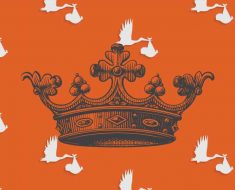By Archana Garodia Gupta and Shruti Garodia
December 5, 1939. It had been an eventful few years for Subhash Chandra Bose. He had become a popular national leader. He had run for Congress President, taken on none other than Mahatma Gandhi-and won decisively! He had been ‘non-cooperated’ out by Gandhi and his followers in the Congress Working Committee and forced to resign. World War II had recently erupted and Britain was at war with Germany again.
Bose, though, saw the war as a fight between two imperialisms–old British imperialism being challenged by a new German imperialism. He decided to support whatever and whoever helped get India her independence.
In jail in Calcutta on charges of sedition, he started a fast unto death. Exactly one week later, on 5th December, the British sent him home, frail and weary; they were worried that wildly popular Bose would die in their jail! They intended to re-arrest him as soon as he recovered.
Police security was set up all around his house, and a dozen spies planted to report what was happening inside. All correspondence was intercepted and read by the watchful British government.
However, they didn’t know that on the very day he reached home, Bose began plotting his escape from India! He hatched a “fool-proof” plan with his brother’s son, Sisir Bose.
While the great leader kept lamenting his looming return to jail to one and all, his nephew was shopping for his uncle’s departure! To fool everyone (including Bose’s mother, who lived in the same house) into thinking he was still there after he left, Bose prepared handwritten notes for visitors, and post-dated letters to be mailed later.
The plan kicks in
On January 16, 1940, Sisir loaded up his German car and went to his uncle’s house, where he found Subhash dressed in a silk dhoti, getting ready to enter a ‘period of religious seclusion’ during which, he insisted, he was not to be disturbed by anyone under any circumstances.
At 1:35 am, the house was finally dark and quiet. Subhash quickly transformed himself, donning a long, closed-collar coat, baggy shalwars, and a black fez-becoming Muhammad Ziauddin, an intellectual-looking north Indian Muslim gentleman! He even had a set of calling cards that read: “Mohd. Ziauddin, B.A., LL.B., Travelling Inspector, The Empire of India Life Assurance Co. Ltd”.
Checking that the security guards around his house were not looking, Bose and Sisir simply got in the car and drove away! Over the next few days, Bose’s niece and nephews at his house pretended that he was unwell and confined to his room, and even ate the food sent to his room! On January 26, they arranged to have the family cook discover Bose’s disappearance so they wouldn’t be suspected!
The British were humiliated and enraged when they finally heard about Bose’s disappearance from Indian newspapers. People started muttering that Subhash Chandra Bose had renounced the world and gone off to become a monk.
Reports and rumours started coming in to the British from across India–Bose was going to fly to Russia; Bose was travelling on a false passport to Japan; Bose was already on a ship sailing to Singapore…it was an intelligence failure of epic proportions and the British felt hoodwinked. They were very sure that he hadn’t renounced the world though, as they believed that Bose would never “cease to strive his utmost to achieve what has been his life’s aim-the complete independence of India.”
Meanwhile, after driving all night, for more than 300 km, Bose and Sisir made their way to Sisir’s brother Ashok’s house near Dhanbad, where they fooled the household by making “Ziauddin” walk in slightly later, apparently on a “work visit” and pretended to not know each other.
Bose the Pathan
The next day, Ashok, his wife Meera, and Sisir all drove Bose to a small station another 50 km away, where he took a train to Peshawar. There, a Pathan called Mian Akbar Shah waited for him. Taken to a safe location, Bose now transformed himself from a north Indian Muslim gentleman to a deaf-mute Pathan, as he didn’t speak Pashto!
After some months, one Bhagat Ram, under the name “Rahmat Khan”, set off with his deaf-mute Pathan uncle “Ziauddin” to visit a Sufi shrine. They soon left British India behind on their rugged trek, winding their way through steep paths in tribal territory, riding on mules, trucks and tongas along the way and finally reaching the Afghan capital of Kabul by January 31, 1941.
Now that he was in Kabul, Bose tried to figure out his next steps, which resulted in him walking into the German embassy, uninvited. While the Italians, Germans and Russians (who were not yet fighting the Germans) were frantically discussing how to get Bose to Europe without letting the British find out, Bose stayed in disguise in Kabul, dodging or bribing suspicious Afghan policemen.
A hit on Bose
However, the British intercepted some telegrams and realised their enemy number one was in Kabul…so they sent message to their Special Operations Executive (SOE) spies in Istanbul and Cairo and asked them to present plans to assassinate Bose as he made his way through Turkey and Egypt to try and get to Europe!
However, they were out of luck. Bose now miraculously transformed into one Orlando Mazotta, using that Italian diplomatic courier’s real passport and attaching his own photo to it. On March 23, “Mazotta” drove off with some Europeans, through the Hindu Kush and into Samarkand (Uzbekistan), from where he took a train to Moscow. He finally flew to Berlin on April 2, 1941.
Birth of ‘Jai Hind’ and ‘Netaji’
Bose stayed in Berlin for almost two years, trying to get the Germans, Italians and Japanese to publicly declare their support for Indian independence, and create an NRI centre of resistance to British rule. He even raised a 4,000-strong Indian Legion in the German army from among the Indian Prisoners of War captured by the Italians and Germans. ‘Jai Hind’ was born as the Indian soldier’s greeting and Bose became Netaji.
Ninety young men were also trained to become part of an elite commando force, wearing a German style uniform with a silk emblem of the Indian national tricolour with a springing tiger in the centre!
Meanwhile, the British SOE were still waiting for Bose to show up in Cairo so they could assassinate him!
When British Singapore fell to the Japanese on Feb 15, 1942, Bose made his first open broadcast to India saying, “This is Subhash Chandra Bose speaking to you over the Azad Hindi Radio…the fall of Singapore means the collapse of the British Empire… and the dawn of a new era in Indian history.” This finally also informed the furious British that he had been in Europe for the last year! The Azad Hind Radio kept up a weekly broadcast in English, Hindi, Tamil, Bengali, Marathi, Punjabi, Pashto and Urdu for the next few years.
Voice of Subhash Chandra Bose
Bose becomes Bond
Bose now itched to return to Asia and take some concrete action there, especially as he felt that the Japanese were far more supportive of India’s cause than the Germans. On Feb 9, 1943 Bose and his close aide, Abid Hasan, boarded a German submarine to make for Japan! It had to avoid British waters, come up at night to recharge its batteries, and also fight enemy ships. Like a British merchant ship it torpedoed and sank while Bose and Hasan were on board!
After many weeks, on April 28, 1943, off the coast of Madagascar, Bose and Hassan went off on a flimsy rubber dingy in choppy waters to transfer to a Japanese submarine sent specially for them! They had somehow survived a long, perilous trip in a German U-boat…which had an average death rate of 80 per cent.
On May 6, the submarine dropped off its passengers at Sabang, Indonesia. After some days of rest, Bose flew on a small Japanese aircraft stopping in Malaysia, Vietnam, Philippines and Taiwan on his way to Tokyo. From there, as many people know, he made his way to Singapore and set up the Azad Hind Fauj from PoWs, including the first all-female regiment, and marched on Burma with the cry ‘Chalo Dilli’!
The Azad Hind Fauj influenced many Indians serving in the British Indian Army, and their trial in 1945 led to revolts in the Navy and Air Force, a significant contributing factor in Britain agreeing to India’s Independence.
Meanwhile, the mystery of Netaji Subhash Chandra Bose’s disappearance endures.
(For more journeys through Indian history, read The History of India for Children Vol 1 and 2, published by Hachette India, and now available online and in stores.)
Source: Read Full Article





